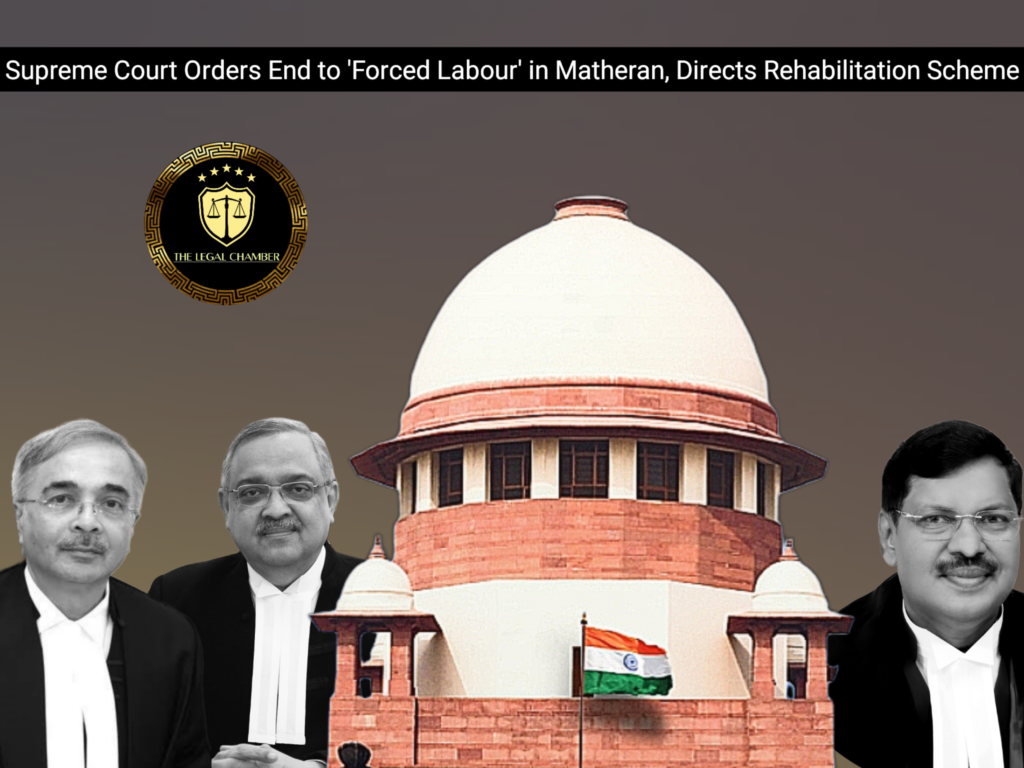
The Supreme Court prohibited hand-pulled rickshaws in Matheran, declaring the practice a violation of Article 23 of the Constitution as it constitutes forced labour and offends human dignity. It directed the state to rehabilitate pullers by providing e-rickshaws through a welfare scheme, balancing ecological concerns with the constitutional mandate of social and economic justice.
Facts Of The Case:
Procedural History:
Court Observation:
The Court made several key observations. It emphasized that the practice of hand-pulled rickshaws constitutes a form of forced labour, violating Article 23 of the Constitution and striking at the core of human dignity, and must be abolished. It relied on expert opinions from IIT Bombay and NEERI, which found that laying clay paver blocks was the best solution to arrest soil erosion on the main road. The Court also observed that the state has a constitutional duty under the Directive Principles of State Policy to rehabilitate affected workers and ensure their livelihood is not jeopardized, drawing parallels to a successful scheme in Gujarat. It stressed the need to balance ecological protection with social justice, mandating that Matheran’s unique character as a pedestrian hill station be preserved by restricting development to only the essential main road.
Final Decision & Judgement:
The Court permitted the laying of clay paver blocks on the main road from Dasturi Naka to Shivaji Maharaj Statue to prevent soil erosion, strictly prohibiting any concrete bedding or use on internal trekking routes. It mandated the State of Maharashtra to completely phase out hand-pulled rickshaws within six months, declaring the practice a violation of Article 23. The State was directed to implement a rehabilitation scheme, modeled on one in Gujarat, whereby it purchases and allocates e-rickshaws on a hire basis to genuine pullers and other underprivileged individuals, with priority given to identified licensed operators. A monitoring committee was ordered to identify legitimate beneficiaries and determine the appropriate number of e-rickshaws, ensuring the unique pedestrian character of Matheran is preserved.
Case Details:
Case Title: In Re: T.N. Godavarman Thirumulpad vs Union of India and Others Criminal/Civil Appeal No: Writ Petition (C) No. 202 of 1995 Date of Judgement: August 06, 2025 Judges/Justice Name: Justice B.R. Gavai & Justice K. Vinod Chandran & Justice N.V. Anjaria
Download The Judgement Here